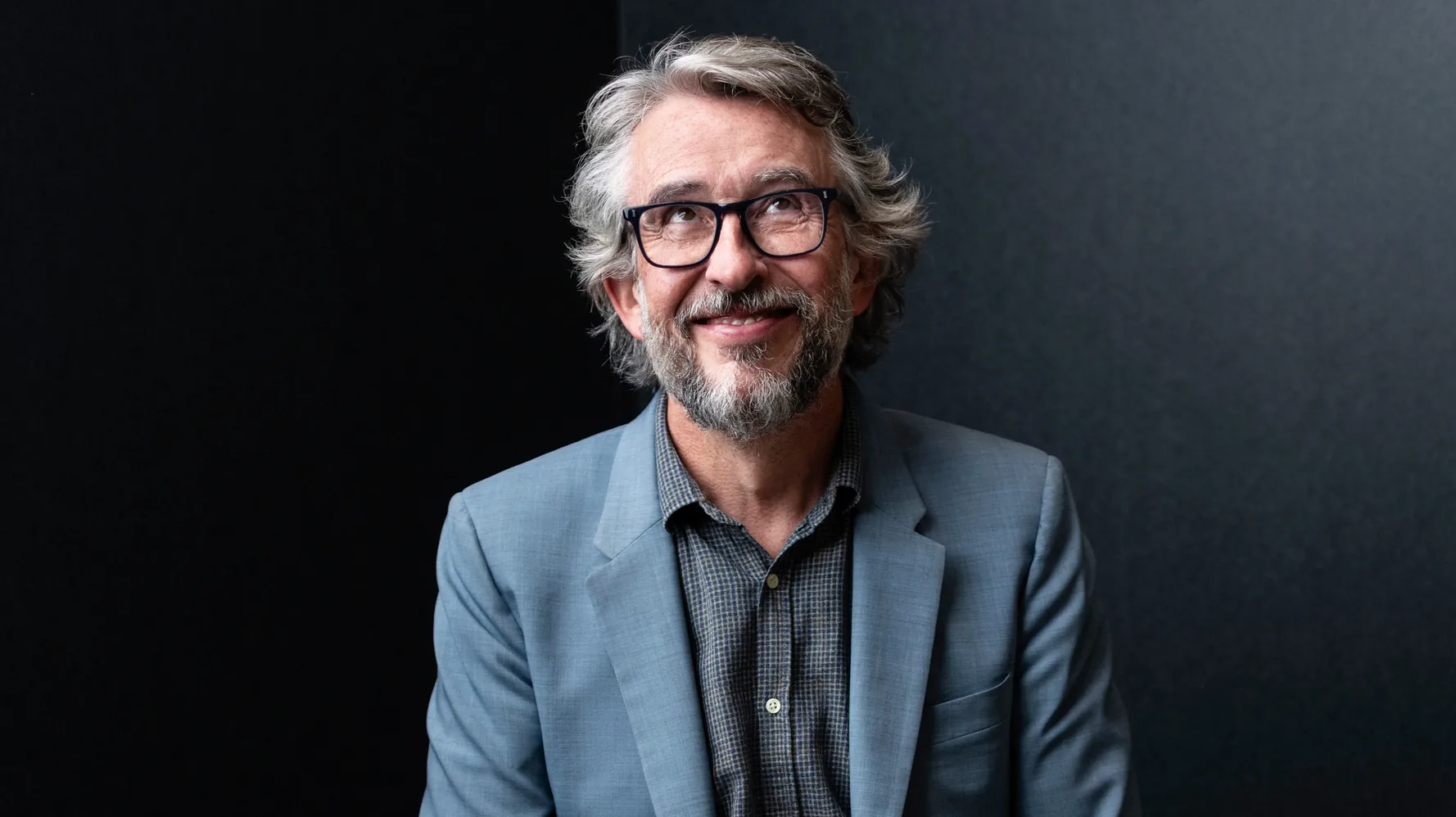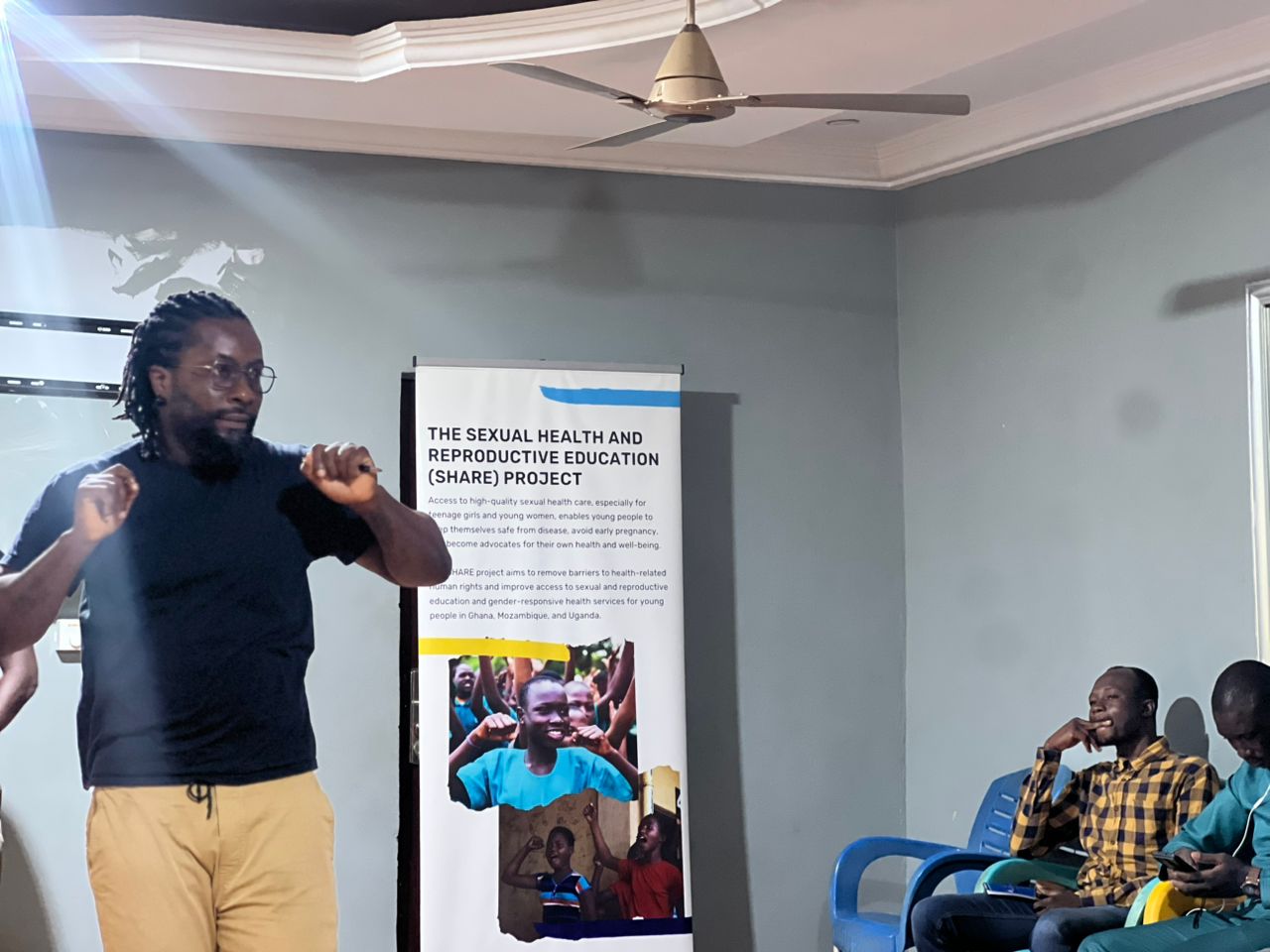By Daniel Welsh
Copyright huffingtonpost

For his latest on-screen venture, Steve Coogan decided that one of the most sensitive topics dominating the conversation right now would be a fitting outlet for TV’s most heavy-handed and tactless characters. Yes, folks, Alan Partridge is back. And this time, he’s tackling mental health.
Ironically billed as “Britain’s first ever documentary about mental health”, How Are You? It’s Alan (Partridge) is a new BBC series in which the unlikely national treasure, fresh from a year working in Saudi Arabia, returns to his home territory and takes it upon himself to try and solve the UK’s mental health crisis.
The idea for the show first came about when Steve and his co-writers Neil and Rob Gibbons asked themselves: “If someone was fading from the spotlight, as a presenter, what would they do to make themselves relevant again?’. One solution they eventually came up with was “well what’s being talked about at the moment?’.
“We live in sort of confessional times, don’t we?” Steve tells HuffPost UK. “In terms of media and personalities. You can sort of spin your trauma into work.”
A quick scroll through BBC iPlayer will potentially support this theory, offering a veritable deluge of celebrity-fronted documentaries about all manner of serious subjects and societal issues, often relating to dark moments from the subject’s personal history.
With that in mind, Steve and the Gibbons brothers came to the conclusion that this trend is one that Alan Partridge himself would want to get in on, reasoning that if “Alan will talk about this, and say that maybe he’s got issues, and make himself vulnerable” it might “make himself interesting” to a viewer.
Steve is quick to insist, though, that the character’s motivations are “not completely cynical”.
Indeed, in episode one, we discover the comedy character has recently been experiencing mental health wobbles of his own, albeit ones that manifest in the most Partridge way possible (which we won’t spoil for you at this early stage).
“It’s not that Alan thinks, ‘oh I’m going to make up that I’ve got an illness’,” he claims. “It’s not. Because I think he genuinely believes there’s something going on. He sort of believes it himself, so he’s not disingenuous.
“He’s not faking it, but he might be wanting something to be true and therefore believing it.”
In fact, while How Are You? is first and foremost a comedy, Steve claims viewers might even “learn a few things” along the way, too.
Fittingly for a parody of the recent influx of celeb-fronted series, Steve concedes that this one “doesn’t really get granular”, instead breezing over the subject in the way “that Alan would”.
By the end of the series, though, the four-time Bafta winner says that things do take a “poignant” turn, as his most famous comedy creation “definitely learns something, in a strange sort of abstract way, about his own baggage”, even if it is “almost accidental”.
“There’s something about it that’s cathartic. So, he might be being cynical in the way he tries to do it, but in the end, he ends up not being cynical. And the programme itself isn’t cynical.”
While How Are You? is “not really going to solve anyone’s psychosis or personal profound psychological issues”, Steve is quick to clarify, he does believe it “ultimately contributes” to the ethos that it’s now “clearly fine to talk about mental health issues and to say you’ve got them” in today’s culture, more so than ever before.
This latest mockumentary marks Alan Partridge’s return to our screens after four years since the final of the satirical magazine show This Time, which parodied the likes of The One Show and Good Morning Britain, through the inimitable Partridge lens.
For Steve and his collaborators, the Gibbons brothers, they like to wait until they have the germ of an idea “that can get us juiced up creatively” before returning to write more Alan Partridge, “and not do it because of some sort of contractual obligation”, insisting that’s an “unhealthy” way of creating.
“I always [like to] go away and do some other stuff, and then I feel like I want to come back,” he shares. “You want to miss it for a bit, and then go home again. And Alan to me feels like going home.
“Doing the other stuff feels like my forays and my journeys and adventures. And then I sort of come home to Alan.”
In the years since This Time came to an end, Steve’s projects have been distinctly un-Partridge, including the ITV crime drama Stephen (inspired by the murder of teenager Stephen Lawrence in the early 1990s), the political drama Brian And Maggie, the Me Too-inspired Chivalry and the controversial The Reckoning, in which he played the disgraced TV personality Jimmy Savile.
Steve remembers making The Reckoning as “relentlessly not funny”, and while there was “gallows humour on set, to relieve the tension”, it was, for the most part, a “really bleak” shoot.
“I’m not really a Method actor as such, so I wouldn’t have my lunch as Jimmy Savile,” he explains. “As soon as they say ‘cut’, I’m out, you know?”
Initially found it easy enough to leave the character at the door, reasoning “this is fine, it’s just a job”.
“People would say, ‘how do you do it? You’re really brave’, [but] it’s a job,” he insists. “My job was to bring that character to life – and not [make him] a pantomime villain, make him real. To deal with this issue, you have to humanise the perpetrator, to an extent. And if you do it as a cartoon villain then you’re sort of doing a disservice to the survivors. I’d go home and try and shake it off, although my daughter once said, ‘Dad, do you know you’re still speaking like Jimmy Savile?’.”
And by the end of the shoot, playing Savile day in, day out was beginning to take its toll.
“I had been doing it for several months, I had a bald head because I had to put wigs on, and towards the end, it started to get to me,” he recalls.
“There was one day I was in the trailer, and I sort of wanted to burst into tears, because I felt so… sort of grubby. The day I walked away and took that wig off for the last time, I felt like I’d been freed.
“And then, you go, ‘I want to just go and laugh again’.”
This unique power of laughter, Steve says, is one he’s only begun to really understand as the years have gone on.
“When I started out I used to think, ‘comedy, so what? Ha ha ha, whatever’,” he admits. “As I get older, I’m more appreciative of how enjoyable it is to laugh. That sounds really simple, but it is a nice thing to do, and it’s a very nice thing to be able to let other people do.
“I think, probably, what changed was getting letters from people who’d been through some sort of trauma, or some terrible life experience, who said that my stuff had got them through that. And that’s when you suddenly go, ‘comedy isn’t trivial, it’s just funny’.
“There’s often this thing, in this country in particular, where we go, ‘oh comedy is a lightweight artform’, compared with drama or all the classics and all the rest of it. But it’s very, very powerful and if used properly, can be a really constructive thing.”
“But,” he acknowledges. “It can also be a really destructive thing. You can destroy people in a really corrosive way, and it can encourage bullying and the worst kind of prejudice can be encouraged by comedy.”
This is something Steve and his co-creators were keen to avoid, especially when handling a subject as thorny as mental health, through a character as frequently insensitive as Alan Partridge.
“We are ethical when we write this stuff,” he maintains. “We don’t punch down, we only punch up to people who have power and autonomy. We don’t mock those who are disenfranchised or disempowered – because we don’t want to!
“In fact, sometimes, we’ll be laughing in the room, me and the Gibbons, and you go, ‘you know what, this is making us laugh here, but actually it encourages a kind of lazy stereotype that we don’t like’. Sometimes we’ll call someone else on it, among the three of us, ‘do you think that joke’s a bit…?’. And then we’ll pause and we’ll say, ‘yeah, let’s leave it’. And we will leave it, even though we’ve been laughing at it, because we don’t want to be part of the problem. And that’s intuitive. It’s not us trying to be, you know, ‘popular’ or whatever.”
He continues: “I heard someone say, ‘oh, self-censorship’s a terrible thing’. No it’s not, actually! Sometimes, you hear this myth propagated, where it’s like, ‘oh, people who don’t laugh at our stuff, they haven’t got a sense of humour’. I mean, you used to hear that from the Top Gear lot years ago, ‘they don’t get us’.
“And I used to think, ’no… I’m funny, I know how to be funny, and you don’t have to be a dick to be funny’. It’s not being a killjoy to exercise some sort of responsibility. It sounds like it is, but it’s not. It’s all about how you’re coming at it, and you can be very, very funny, and as long as the process that you’re doing it is about calling the right people to account, then that’s absolutely fine.”
Something else Steve is often “annoyed” at is the regrettably oft-repeated adage of “you can’t say anything anymore”.
“That’s bullshit. Bullshit,” he says. “To people who say that, I don’t agree with them, I think they’re totally wrong. They’re just not inventive enough to know how to be funny.”
In fact, while attitudes and standards may have shifted considerably since Alan Partridge first came on the scene three decades ago, Steve says this is something he finds beneficial as a comedy writer.
“There’s no doubt about it, there are new protocols that you’re supposed to observe,” he explains. “In actual fact, that, to me, is quite a fruitful thing. You can sort of have your cake and eat it, because you can sort of play with the notion of what you are, or what you are not, supposed to say – and make that funny.
“Certainly, with Alan Partridge, it’s sort of a strange vehicle where you can do the wrong thing and it still be OK, and it still be funny, because it’s all filtered through the character. I’m not going around saying the things that Alan says, and I don’t agree with most of the things that Alan says. But sometimes I do! I won’t tell you which ones, but sometimes I go, ‘tee-hee-hee’.”
He says: “There’s an inherent conflict in most people, which is perfectly healthy and perfectly normal, which is that we might know that we ought to feel something, but then our instinct or thoughts can be in conflict with that. And those thoughts might not be very constructive, but that doesn’t mean they’re not real.
“It’s things like, petty prejudices that we know that we ought not to have, [but] we still maybe intuitively have to navigate around. Sometimes, it’s very difficult to sort of say, ’I sometimes think this’, because people will then jump down your throat and go, ‘you’re a bigot’. But actually, it’s ‘are you trying to do the right thing?’. And the thing about Alan is, he is trying to do the right thing. He sometimes fails, but he’s not malevolent or malicious, he’s just sort of a fool, really.
“And sometimes, like the Shakespearean fools, you can point things out that are true. You can say the Emperor’s not wearing any clothes.”
With Alan Partridge, Steve notes, “you know what the intention behind it is, and even if he is being ignorant or insensitive, we’re laughing at him, not at the joke, necessarily”.
As for his new show’s potentially thorny subject matter, Steve says this was part of what attracted him and the Alan Partridge team to the idea.
“If you feel a bit of anxiety about whatever creative choice you’re making, that’s probably a good sign.”
“Something I’ve realised over the last 30 years is, when people are anxious about something, it makes them more fertile for them to want to laugh, because they need a release from that anxiety,” he observes. “You make them a bit anxious about something, and it’s a slightly uncomfortable feeling in the pit of your stomach. And then, when you make them laugh, the laughter is louder somehow, because it is this pressure valve release.
“Sometimes people make the mistake of thinking, ‘don’t talk about that, it’s too problematic’, but in actual fact, the reverse is true. Talk about things that are problematic, and then, it actually brings people together.
“We live in these strange times where people are anxious about what they say and think, and feel that they’re going to be sort of monstered by people for having a point of view that isn’t a collected sort of package of off-the-shelf beliefs.”
For Steve, in increasingly divided times, comedy can be a useful tool to unify people who might otherwise be completely politically or ideologically opposed.
“What I like about when I’m doing a live show is, if I look at my audience, and they’re all laughing at the same moment, I think, ‘all those people in that audience must all have different views about things, and yet, for a few seconds, they are all in agreement that they think that thing was funny’. And that’s it’s only recently I realised how incredible powerful that is
“It’s like, ‘oh you can unify people, even if it’s only for a few seconds’. And then you think, ‘wouldn’t it be great if you could do that all the time?’. It connects people if they’re laughing as a group. You go, ‘maybe my opponent isn’t so scary, I mean, we both agree that that was funny’.”
“Having said that,” he notes. “It sounds like we’re sort of crusaders with our comedy. But we just do stuff that makes us laugh.”
How Are You? It’s Alan (Partridge) premieres on Friday 3 October on BBC One, with all six episodes then being made available to stream on BBC iPlayer.



